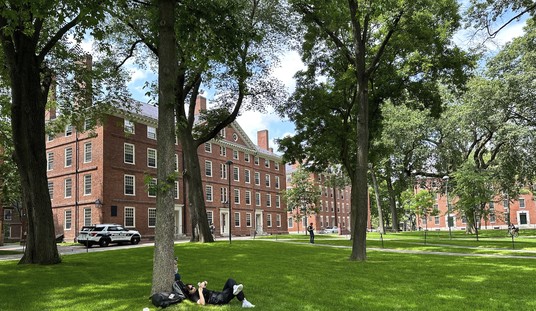Will Donald Trump use his pen and phone to close up a gaping strategic vulnerability on pharmaceuticals? Congress has initiatives in process to incentive and pressure pharmaceutical manufacturers to relocate supply chains to the US, but Trump might beat them to the punch. An executive order to force domestic production of “essential drugs” could come as early as today, CNBC reported late yesterday:
The White House is preparing an executive order which will require certain essential drugs be made in the U.S., two sources familiar with the matter told CNBC on Thursday.
One of the sources told CNBC’s Kayla Tausche the order could come out as soon as Friday. The applicable time frame for reviewing the order will be 90 days, the sources said.
The administration has a wide-ranging supply chain effort underway for products in a variety of sectors seen as national security issues, including drugs, medical supplies, semiconductors and defense equipment, the sources said.
Clearly the main target for this policy would be China, whose control of supply chains for medicines and medical gear has already created headaches in the COVID-19 pandemic, and not just for the US. This order might impact other trading partners, however, depending on how “essential” gets defined. While China produces a significant amount of our drugs, it may not be quite as large a share as some assume:
About 72% of pharmaceutical ingredient manufacturers supplying the U.S. are located overseas, including 13% in China, according to an October congressional testimony by Janet Woodcock, director of the Food and Drug Administration’s Center for Drug Evaluation and Research.
Bloomberg reported separately that the draft EO hasn’t yet been reviewed by Trump, but that it could go out quickly once he sees it. It does have one caveat on cost that could turn into a loophole:
The draft order is still in the preliminary stages and hasn’t gotten sign off from the president. It has reached other federal agencies for review and coordination, including the Pentagon and the Department of Health and Human Services. A Pentagon official Thursday said the draft order was being reviewed and coordinated within the relevant office.
The executive order would limit any federal contracts for those supplies to manufacturers in the U.S. and would require that production be divided among multiple companies to ensure price competition. The drugs and devices covered by the order include anything used to respond to a public health emergency or biohazard attack. The list of “essential medicines” will be later determined, according to the executive order.
The exceptions would be if U.S. production isn’t in the public interest, the treatment or device isn’t produced in sufficient quantities in the U.S., or if it raises prices by more than 25%.
The exception review process on that should be interesting. Pharma manufacturers who have a vested interest in cheap labor could game this out by claiming that costs will rise more than 25% with American production on nearly anything, and they might not even have to game much to prove that. The labor costs between China and the US have to be at least 25% different, if not more so.
Manufacturers have managed to stave off action for two months, but their luck is running out, apparently. Trade advisor Peter Navarro pushed for a similar EO in March at the beginning of the shutdown, which ended up going nowhere. With job losses now approached 23 million or more, the buy-American argument must have have more traction now than it did in mid-March:
When asked about the push by lobbying group PhRMA against the executive order, Peter Navvaro told CNBC, “This Big Pharma spin is simply a desperate attempt to stop President Donald J. Trump from moving the production of our essential medicines and medical equipment and supplies to the U.S.”
Navarro, known for his hawkish views on China, told CNBC earlier this week that he is bringing an executive order to Trump that would aim to reduce United States dependency on foreign manufacturers for medicine. About 72% of pharmaceutical ingredient manufacturers supplying the U.S. are located overseas, including 13% in China, according to October congressional testimony by Janet Woodcock, director of the Food and Drug Administration’s Center for Drug Evaluation and Research.
The executive order Navarro is planning will streamline regulatory approvals for “American-made” products and look to impose similar FDA restrictions on U.S. facilities as those abroad. It will also encourage the U.S. government, including the Department of Defense, Department of Health and Human Services and Department of Veterans Affairs, to only buy American-made medical products.
Sounds like the same proposal, or close enough for government work. Trump has some authority to order this in the short term through the Defense Production Act, although manufacturers could challenge that in court. The administration can put more pressure on manufacturers through the FDA’s regulatory process with or without a formal EO by forcing all outsourced production to meet FDA standards in all facilities, not just those in the US.
However, the likelier long-term solution will be to get Congress to provide subsidies and tax incentives for relocating supply chains back to the US. That also happens to be the proper solution for any long-term policy choices. This pandemic has shown the strategic vulnerabilities of our globalized supply chain, especially those in hostile nations, and we need a long-term plan to ensure better security for critical needs in times of emergency.







Join the conversation as a VIP Member